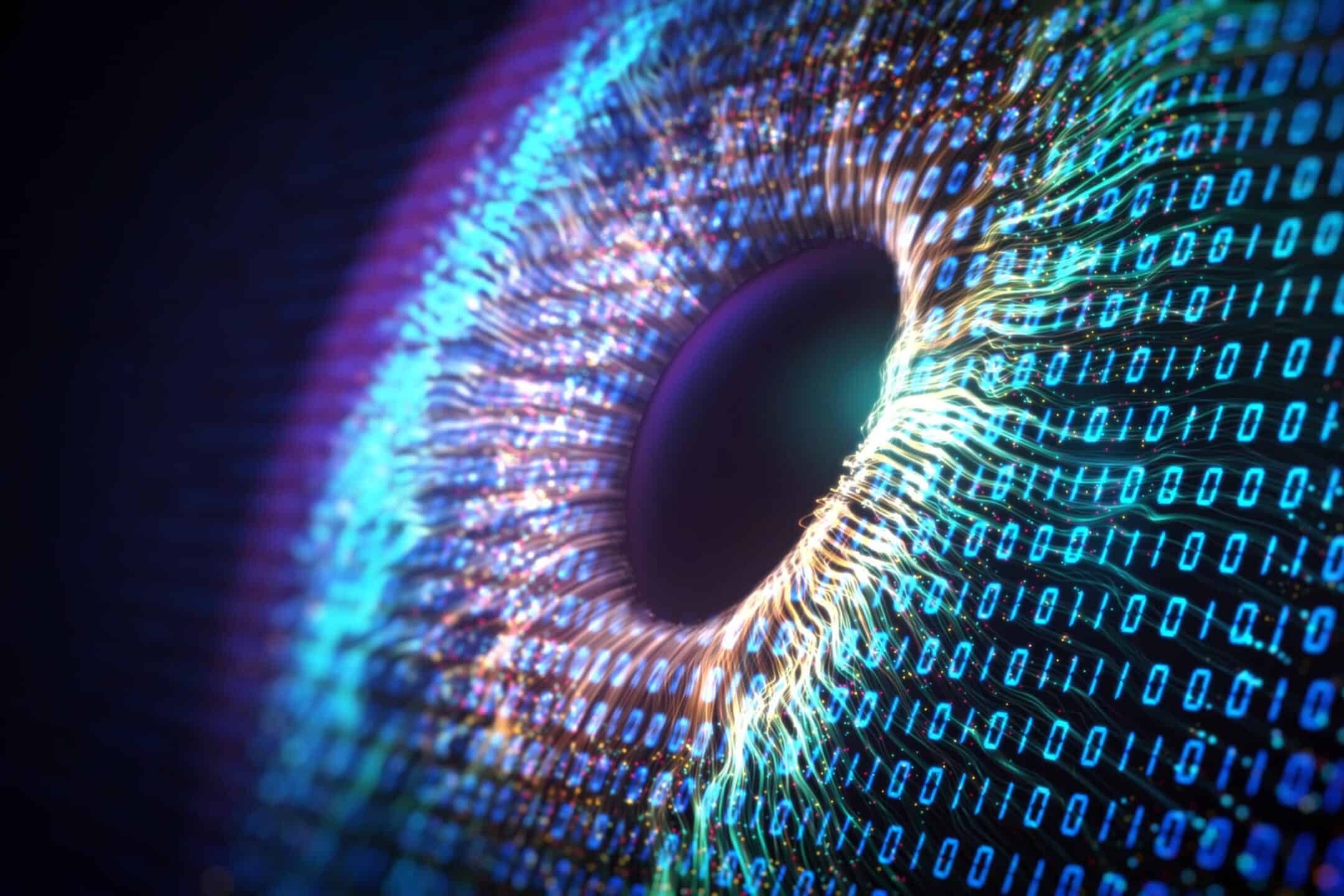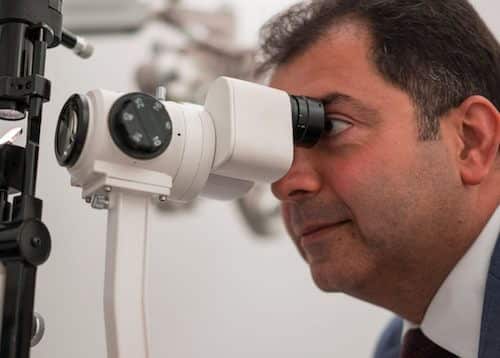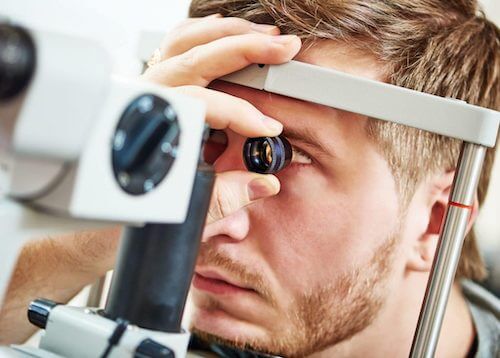Book Your Free Consultation
Mr David Allamby
MD, FRCOphth, FRCS
• Over 50% see 20/12, almost twice as sharp as 20/20 vision**
• Better night vision than traditional LASIK
• As featured on BBC Radio 4, Daily Mail & Daily Telegraph
Tired of having to wear prescription glasses or fiddle with contact lenses every morning?
Are you suffering from eye strain or blurred vision? Or do you find it difficult to read?
Considered laser eye surgery in the past but still aren't sure if it's the right procedure for you?
At Focus Clinics, our team has over 70 years of combined industry experience and has completed over 60,000 successful surgeries.
Want to see real reactions from real people, just moments after they've had laser eye surgery?
Laser eye surgery, also known as laser vision correction, is a procedure that uses lasers to reshape the cornea of the eye so that individuals with poor eyesight are able to focus better.

Laser eye surgery may help with several eye conditions, including:
In many cases, laser eye surgery may help to drastically improve your vision, removing your reliance on glasses and contact lenses completely.
Whether you struggle reading, have blurred vision, wear glasses or contact lenses, or have other vision problems, if suitable, laser eye surgery can help to reduce these issues, if not completely rectify them.
Book a Consultation
To get a better idea of how we can help you, and also the different types of services we offer, book a consultation now.

Ray-Tracing Guided LASIK is a fully customised laser vision correction surgery that uses 3D ray‐tracing technology to scan each eye for a completely personalised outcome and significantly improved vision.

LASIK eye surgery (Laser-Assisted In-Situ Keratomileusis) is the most widely used laser eye surgery used to correct short-sight, long-sight, astigmatism, and presbyopia (the need for reading glasses).

LASEK and PRK reshape the cornea to correct abnormalities in focus, just like with LASIK. The difference with LASEK / PRK is that there is no flap made in the cornea. This treatment is not as popular as LASIK.
At Focus Clinics, our LASIK treatments start from £4,400 for both eyes. This fee covers a complete treatment package, not just the surgery itself, and includes a detailed assessment, face-to-face consultation with your surgeon, advanced technology, and unmatched aftercare, including a 10-Year guarantee.
Be cautious of ads promoting much lower prices, as these often only apply to very low prescriptions or use older technology.
When comparing prices, make sure you're comparing like-for-like – not just the surgery cost, but the level of care and support you’ll receive long term.
LASIK reshapes your cornea to correct vision problems. The surgeon creates a thin flap in the cornea's surface, folds it aside, then uses a laser to remove microscopic tissue - flattening the cornea for nearsightedness, steepening it for farsightedness, or correcting astigmatism with an oval pattern. The flap is then repositioned and heals naturally.
The entire procedure takes about 5 minutes per eye, and provides permanent results because the laser evaporates collagen tissue that won't regenerate.
Learn more about how laser eye surgery works here.
The effects of laser eye surgery are generally permanent, but in a small percentage of cases, retreatment or enhancement may be required. The number of patients who were originally treated for short-sightedness and who have returned to us for a boost is around 1% over the years.
At Focus Clinic, we offer a 10-year free re-treatment guarantee, which means that if you do require an enhancement up to 10 years later, we will provide this completely free of charge. This is for patients who were short-sighted, with or without astigmatism.
Most clinics only offer 12 months of re-treatment without incurring further fees, which can be as much as the original amount paid.
Please note that long-sighted prescriptions, including the need for reading glasses, are age-related. Hence they will progress as the patient gets older. These treatments are not included in the 10-year guarantee but will get our Focus Lifetime Aftercare, where they can return at any time for an opinion and assessment if the treatment appears to be waning (which it will as the years go by).
For the past 3 years, 100% of Focus patients with typical short-sighted (myopic) prescriptions have achieved 20/20 vision with a single treatment. We do not know of any other clinic that has achieved this success rate.
We published our results in a peer-reviewed scientific journal, and you can see the research paper here.
Our commitment to a 100% success rate for 20/20 and better has taken us to new levels of excellence in clinical outcomes. And while this does not guarantee your individual success, our results from the past 3 years will give you a high degree of confidence that you will attain a very clear level of unaided vision.
Our commitment to you is that we will not perform treatment on you or anyone we feel does not have an excellent possibility of achieving independence from glasses and contacts. Our team is risk-averse, meaning that we do not take chances ourselves or take them on your behalf.
The vast majority of our patients are extremely happy with their results and can do most activities without dependence on corrective lenses after vision correction. For typical short sight, 99.7% of patients can see better than 20/20 following their laser vision correction.
See here for more about our results.LASIK is very safe with serious complications occurring in less than 1% of cases.
In fact, you're actually 5 times more likely to experience vision problems from contact lenses than from LASIK surgery.
Common side effects, such as dry eyes and temporary glare, typically resolve within weeks or months. Safety depends on proper patient selection and choosing an experienced surgeon with modern equipment.
You'll need to be over 18, have a stable prescription for at least the last year, and generally have healthy eyes. You may not be suitable if you have autoimmune diseases, uncontrolled diabetes, severe dry eyes, or certain eye conditions, but many vision problems can be corrected with laser surgery.
The best way to find out if you're suitable is to book a free, no-obligation consultation where we can assess your individual needs and explain which treatment would be best suited for you.
You should look at the total package for your vision correction. LASIK or lens replacement surgery is not a commodity but rather precision microsurgery on your eyes. Pay what it costs to get a premium provider - because it’s your eyes.
Look at what the aftercare includes. Is there a free re-treatment period? Can you return later without being charged?
(We offer a unique 10-year free re-treatment guarantee for our short-sighted laser procedures. Most clinics offer just 12 months and then will charge you again.)
You should look for excellent reviews and an extremely high proportion of 5-star ratings. The most common review sites in the UK are Trustpilot and Google.
You can click here to see all the UK’s eye care clinics on Trustpilot.
Choosing the right surgeon to perform your laser eye surgery is also a key part of your choice. It can be a difficult decision and one that you should not base solely on price. Often, those clinics that charge lower prices have to turn over a large number of patients, meaning that the care you get could be substandard.
Again, follow the reviews and see how actual patients rated their clinic and their surgeon.
On your treatment day, expect to be with us for around two hours. However, the surgery itself only takes around 10 minutes for both eyes!
Why will you be there for two hours then? The rest of the time is used to ensure the safest possible treatment for you and your eyes.
Your eyes will be re-scanned, so we have the latest data. You will meet your surgeon again to confirm the health of your eyes and re-measure your prescription (especially important if you have been using contact lenses previously).
The scans will assess thousands of data points with remarkable accuracy. We only use the latest scanners, such as the Osiris-T wavefront aberrometer with a resolution of 45,000 points, higher than any other device.
The goal: 100% accuracy for your surgery.
Afterwards, you will spend 10-20 minutes in our patient recovery room or lounge, where you can relax, drink tea and eat biscuits while your eyes adjust after surgery.
Most patients will have better vision straight after LASIK surgery and excellent 20/20 vision or better just 4-24 hours later. With other laser procedures, it will take longer to get great vision: lenticule extraction (e.g. CLEAR, SMILE) takes 1-7 days to recover, and PRK/LASEK takes 4-10 days.
The end results of each type of procedure are very similar, but LASIK offers the fastest recovery.